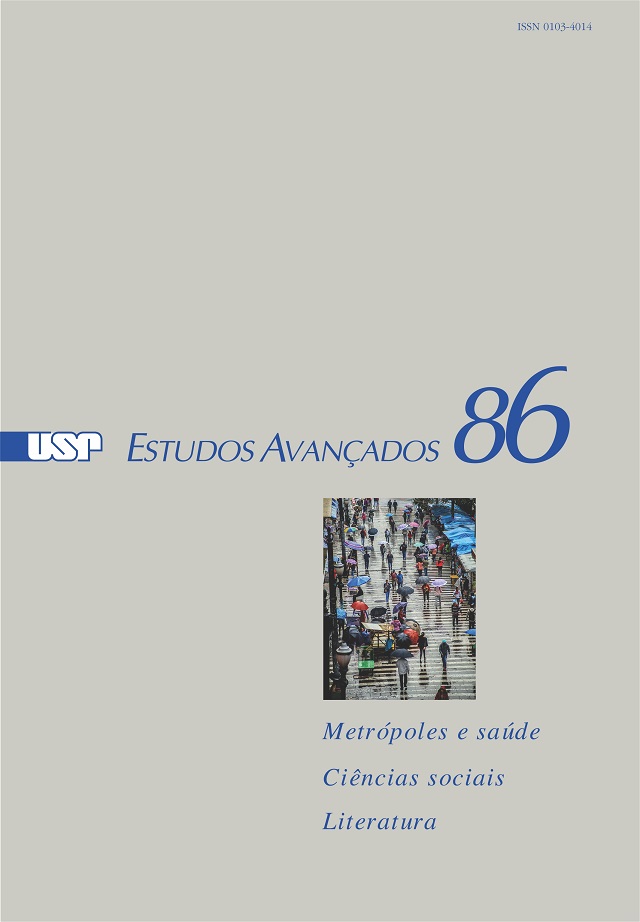Saúde nas metrópoles - Doenças infecciosas
Abstract
Urbanization is an irreversible global process and the number of people living in cities is estimated to reach 67% of the world population by 2050. In low- and middle-income countries, 30% to 40% of the population currently lives in slum areas, under risk of several diseases. Even though 84.3% of the Brazilian population already lived in urban areas in 2010, no consistent initiatives have been implemented to address urban health issues. We discuss here the epidemiological features of communicable diseases that are relevant to public health (dengue, HIV/aids, leptospirosis, leprosy and tuberculosis) in Brazil's 17 metropolitan areas since 2000 to help clarify the current role of infections in the context of Brazilian urban health.Downloads
Download data is not yet available.
Downloads
Published
2016-04-01
Issue
Section
Metropolises and health
License
Estudos Avançados não celebra contrato de cessão de direitos autorais com seus colaboradores, razão pela qual não detém os direitos autorais dos artigos publicados. Os interessados em reproduzir artigos publicados na revista devem necessariamente obter o consentimento do autor e atribuir devidamente os créditos ao periódico.
How to Cite
Segurado, A. C., Cassenote, A. J., & Luna, E. de A. (2016). Saúde nas metrópoles - Doenças infecciosas . Estudos Avançados, 30(86), 29-49. https://journals.usp.br/eav/article/view/115079


